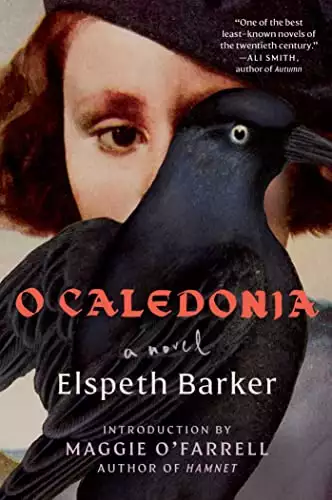Janet
Halfway up the great stone staircase which rises from the dim and vaulting hall of Auchnasaugh, there is a tall stained-glass window. In the height of its Gothic arch is sheltered a circular panel, where a white cockatoo, his breast transfixed by an arrow, is swooning in death. Around the circumference, threaded through sharp green leaves and twisted branches, runs the legend “Moriens sed Invictus,” dying but unconquered. By day little light penetrates this window, but in early winter evenings, when the sun emerges from the backs of the looming hills, only to set immediately in the dying distance far down the glen, it sheds an unearthly glory; shafting drifts of crimson, green, and blue, alive with whirling atoms of dust, spill translucent petals of colour down the cold grey steps. At night, when the moon is high it beams through the dying cockatoo and casts his blood drops in a chain of rubies onto the flagstones of the hall. Here it was that Janet was found, oddly attired in her mother’s black lace evening dress, twisted and slumped in bloody, murderous death.
She was buried in the village churchyard, next to a tombstone which read:
Chewing gum, chewing gum sent me to my grave.
My mother told me not to, but I disobeyed.
Janet’s parents would have preferred a more rarefied situation, but the graveyard was getting full and, as the minister emphasised, no booking had been made. They had long before reserved a plot for their own ultimate use at a tiny church far off on the high moors; there was scarcely room for Janet there either, and under the circumstances they could not feel they wanted her with them. Her restless spirit might wish to engage with theirs in eternal self-justifying conversation or, worse still, accusation. She had blighted their lives; let her not also blight their deaths. And so, after her murderer had been consigned to a place of safety for the rest of his days, and grass had grown over the grave, Janet’s name was no longer mentioned by those who had known her best. She was to be forgotten.
For a while her jackdaw remembered her and he searched for her unceasingly. High above the glen he floated, peering down into the woods where she used to ride. He swooped to the sunken garden below the terrace; there, in the rare warmth of summer, the air perfumed by azaleas, she had fed him with wild strawberries which grew among the ivy at the base of the wall, leaving none for her family. Down the back drive to the derelict stables he flew, then up to the castle again, hurling himself against windows, hopping about the high, hidden chimney pots, bobbing his inquiring head into one after another and provoking furious flusters and punitive forays from the jackdaw colonies within. Each night he returned to her barren room to roost. His house was the only thing in it now. Before, he had always perched on the end of Janet’s bed, but now he crept under cover and slept in loneliness. He lost interest in food and no longer joined the family at the dining table, jabbing his beak in the mustard, rearranging the spoons, guilelessly hopping through mounds of mince and cabbage. At last, in desolation, like a tiny kamikaze pilot, he flew straight into the massive walls of Auchnasaugh and killed himself. Janet’s sisters found him, a bunch of waterlogged feathers in a puddle, and they buried him. They shed bitter tears for him and for Janet too, then, but they knew better than to mention it.
After that, only the speywives, the fishwives, the midwives, the ill-wishers spoke of her, endlessly rehearsing a litany of blame; for blame there must be, and no one could blame the murderer. Their voices whined and droned, spiteful as the sleety wind which slashed their headscarves across their faces as they huddled by the village bus stop, dreary as the wind which spat hail down the chimney as they took Sunday afternoon tea in the cold parlours of outlying crofts, where the Bible was open beside a ticking clock and rock buns were assembled on snowy doilies, malignly aglitter with the menace of carbonised currants. So they blamed the mother for giving the child all those books to read: “It’s not natural for a bairn”; they blamed the father for his ideas about education; they blamed everyone and everything they could think of, but in the end there was grim assent: “The lass had only herself to blame.” The subject lost its appeal and was closed in favour of the living, who offer continuous material for persecution.
We hope you are enjoying the book so far. To continue reading...
Copyright © 2025 All Rights Reserved
